This article contains spoilers for Season 1 of Jupiter’s Legacy.
Let me start with the one thing about Jupiter’s Legacy that worked for me. Ben Daniels is the spitting image of his comic book counterpart Brainwave. See Exhibit A.
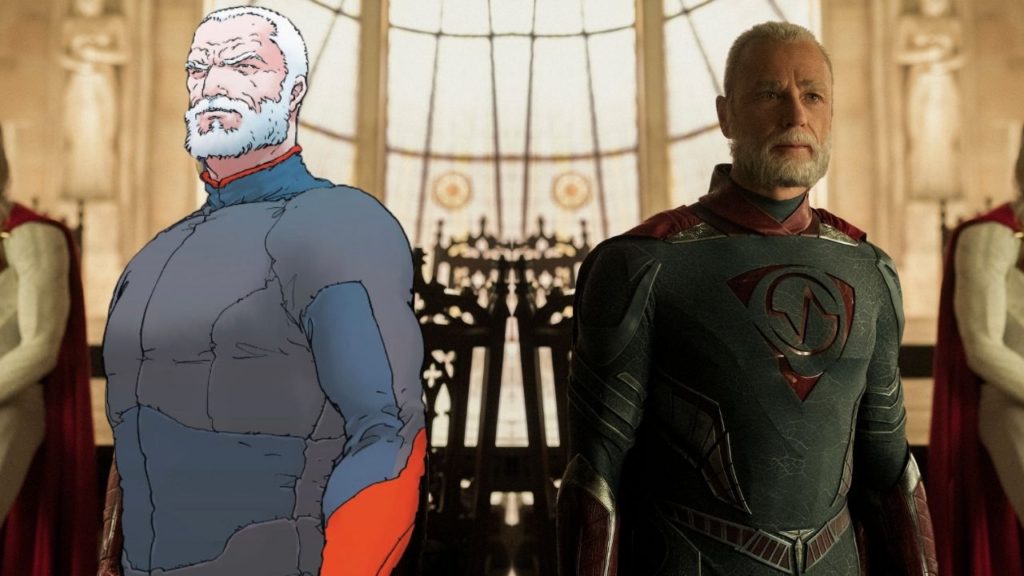
And that’s about it. Everything else about this series was a tiresome slog. These eight episodes didn’t just fail to capture the themes of the source material, but also missed the point of the series entirely. The comic, which was a clever subversion of classic superhero tropes and ideas, has been stripped of that uniqueness and replaced with an entirely humdrum narrative that is a missed opportunity that adds absolutely nothing to the conversation. (More about this later.)
Now, Netflix isn’t stupid. They knew that this was an uninspiring mess. Which is probably why there wasn’t any pre-launch hype for Jupiter’s Legacy. Apart from that trailer drop a month ago, there have been no global press junkets, no surprise poster reveals, and no review screeners assigned to the media beforehand. Compare that to the intense marketing blitz surrounding shows like The Umbrella Academy or Shadow and Bone. When a studio has a hit on its hands, they usually want everyone shouting about it, as soon, and as often, and as loud as they can. More so when it is the first actual product from Millarworld, Netflix’s first ever corporate acquisition from back in 2017.
I know that there is a lot more that’s coming to Netflix from Millarworld, and I for one am really looking forward to The Magic Order, American Jesus, Sharkey the Bounty Hunter, and especially Prodigy. So much so that I’m hoping Netflix spends its time and money focussing on those stories instead and just forgetting that this thing ever existed.
Jupiter’s Legacy was such a rocky start to the whole enterprise that I don’t think it deserves a second season. Here are five reasons why.
1. No One Needs Another Damn Origin Story!
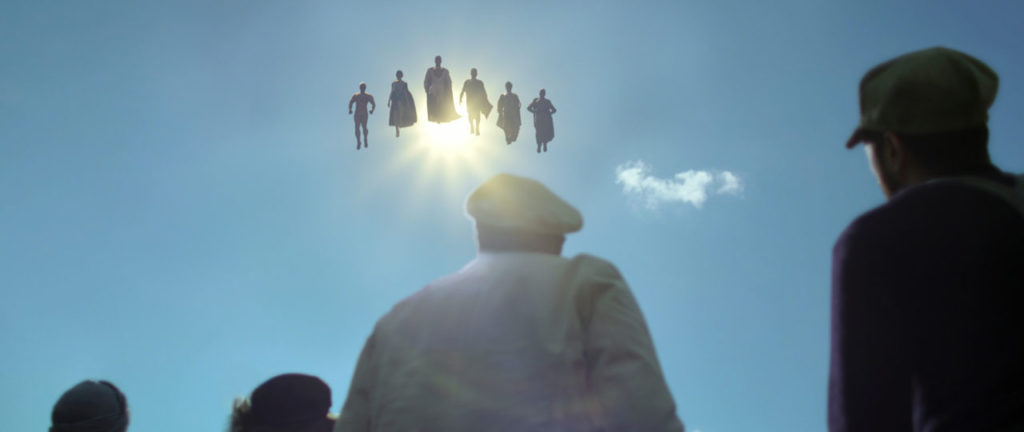
We really don’t! We live in a time when superhero content is so ubiquitous that the audience is now well primed for these sorts of comic book escapades. We no longer need that part of the hero’s journey. God knows, we’ve seen it far too many times already. Jupiter’s Legacy treads that same old same old, stretching out what was barely a few pages in the comics, across eight laborious episodes, giving us a pointless origin story that does nothing to serve the story that they’re trying to tell.
What’s more, that wasn’t the premise of these comics either. Hell, it wasn’t even the promise of this series. See Exhibit B.
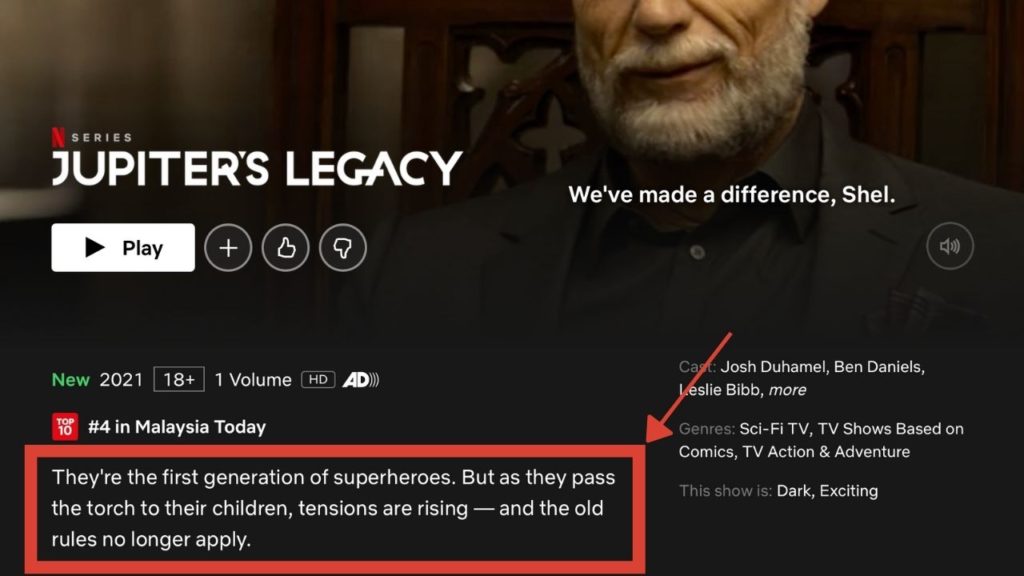
Jupiter’s Legacy doesn’t even deliver on its synopsis. Here I am, one season later, and absolutely zero torches have been passed. Yes, there is a lot of bellyaching between The Utopian (Josh Duhamel) and Lady Liberty (Leslie Bibb) about what to do with their children, Brendan (Andrew Horton) and Chloe (Elena Kampouris), but all of it is dialogue for the sake of exposition as opposed to actually building character and conflict.
The idea behind the comic was a simple one. The idea behind the comic is in the damn title. This was a story that centered around a second generation of superheroes who were struggling to live up to the legacy of their perfect parents, and who had become increasingly jaded by a world that seemingly never changed for the better. It was an interesting concept that subverted your average superhero comic by posing those “what ifs.”
The comic didn’t delve into the details of how The Utopian and his fellow superheroes got their powers. It didn’t waste any time with their trials and tribulations. We already have 80 years of Superman and The Justice League. We already know what it was like to be a superhero. What we didn’t know, however, was what it was like to be the offspring of one.
This is a concept that didn’t need a season long setup. The comic book did well to build on an existing canon of stories, and this series would have done well to do the same. (For an example of how to do that, see: The Boys, Invincible, etc.)
2. Jupiter’s Legacy Looks and Feels Cheap
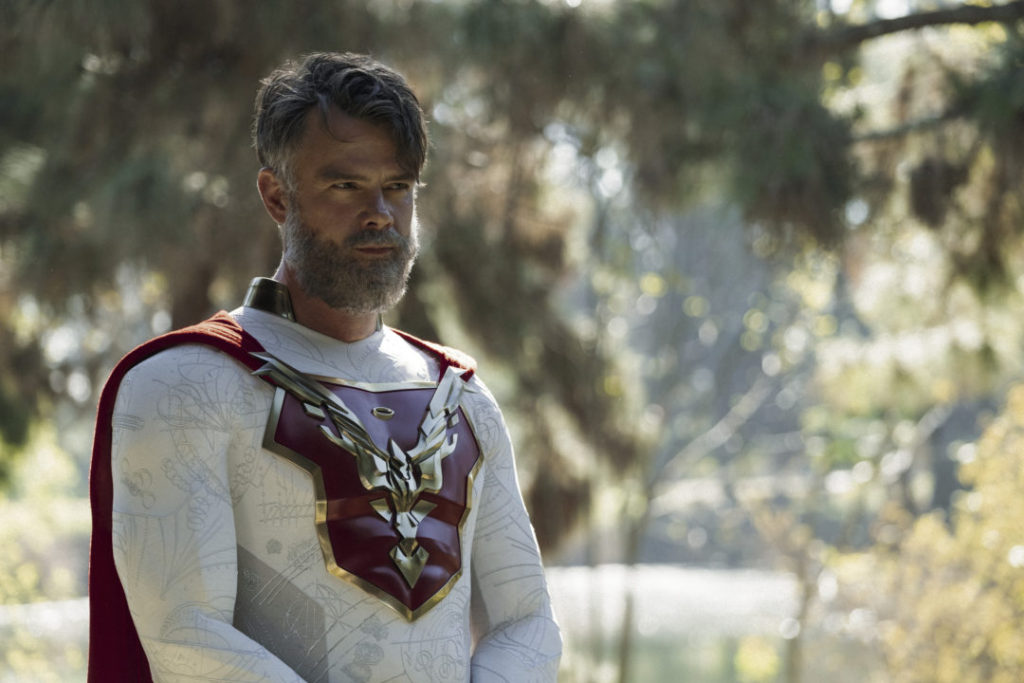
From the poorly choreographed fights (that big showdown at the end of the first episode is hilariously bad), to the terrible superhero costumes and bad makeup (did someone just get Josh Duhamel’s beard by searching for “fake white beard” on Amazon?), to the sound effects and music, everything about this production looks and feels incredibly cheap.
I mean, this series is so kitschy, it’s got people from The CW going:
Did Netflix just buy Millarworld and then give the people making Jupiter’s Legacy two hundred bucks and some Walmart vouchers?
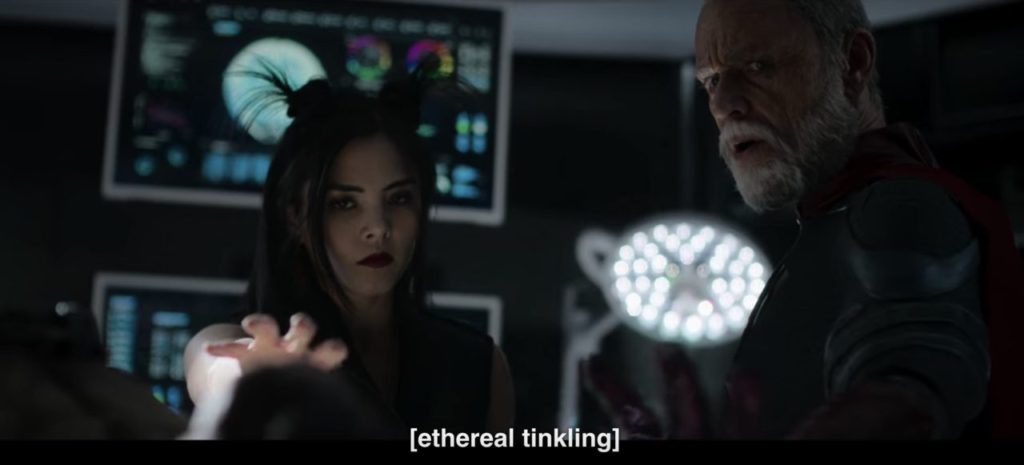
3. A Misplaced Focus
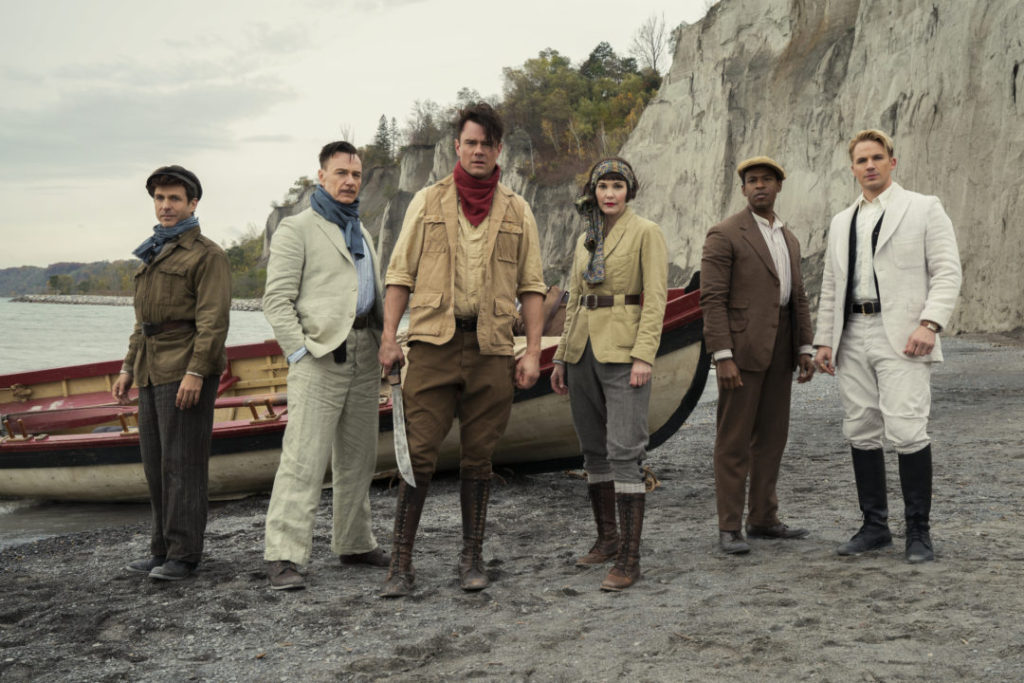
Despite being published in 2013, the Jupiter’s Legacy comic book still has an incredibly timely and relevant premise. There was an overarching narrative about why these individuals were granted special powers and it had to do with saving America from itself. The comic asked if superheroes were the solution to a society that seemed hellbent on tearing itself apart? And if they were indeed the solution, then how active a part should they play? Do they remain apolitical and serve society, or do they take over and play God?
In 2021, with America as divided and broken as it’s ever been, what better time for a television show to explore the metaphor of a society so emasculated that they feel the need to turn to a higher power to save them. It would have been perfect.
Alas, what we got was eight episodes dedicated to an interminably dull exploration of whether or not superhero should kill.
4. A Wasted Ensemble
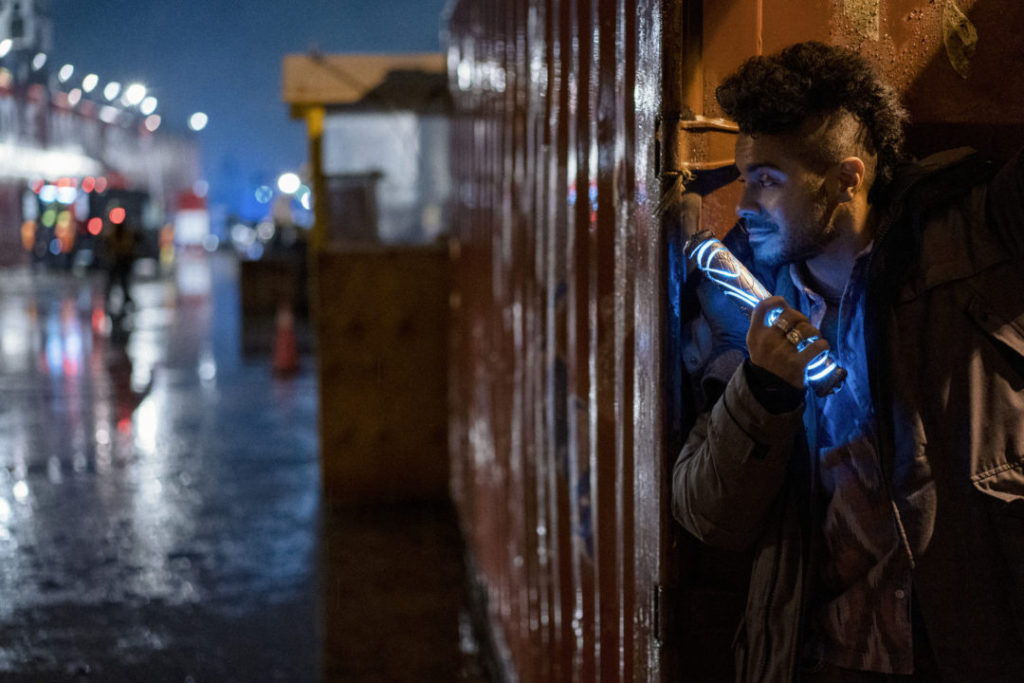
Every character should have a purpose. Each one should serve the story in some way. One of the hallmarks of bad writing is failing to create distinct characters that drive the story forward. What is the point of a superhero series when you can’t really tell what makes each of these individuals special? All of them are interchangeable. They either punch really hard or glow incandescently. Some of them exist just so our leads can have someone to talk to in a particular scene.
Characters are race swapped but their individual narratives are so sidelined that it feels like nothing more than tokenism. I kept waiting to learn more about Mike Wade’s Fitz, his role in the Union, and how his experiences as a Black superhero would affect his view of this changing world, but got absolutely nothing. Nothing.
5. An Unearned Twist
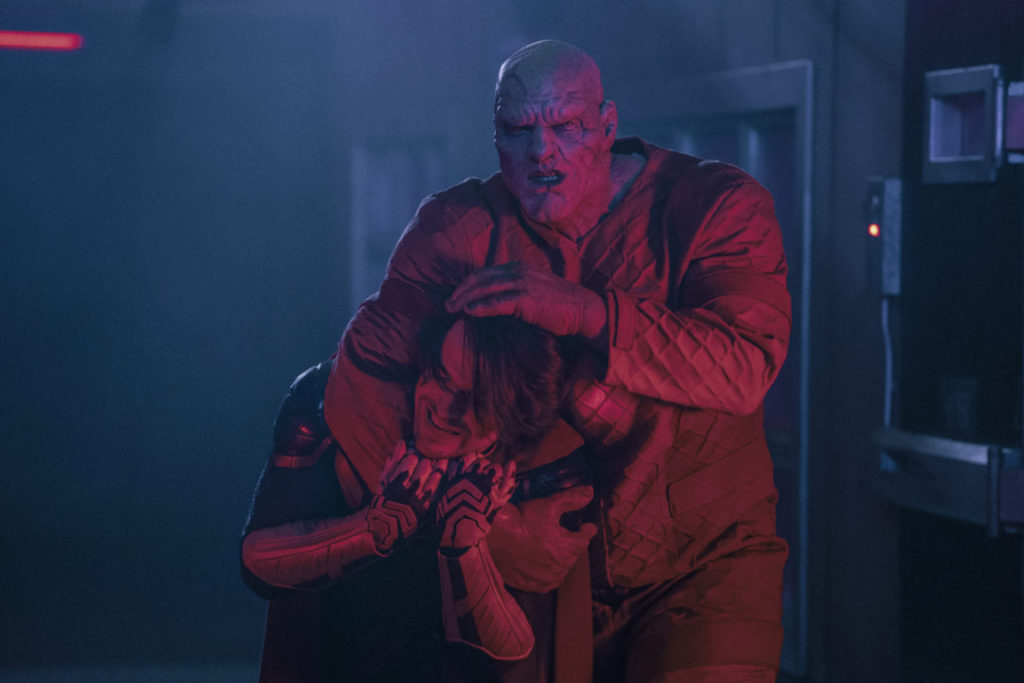
In the comics, that big reveal of Walt’s true intentions happens in Issue #2. Remember that this was a story that was centered around the children on the world’s greatest superheroes, so things moved very quickly past the old guys and their conflicts. (Here the showrunners seem so thrilled at the idea of having Josh Duhamel and Leslie Bibb that they all but ignore Andrew Horton and Elena Kampouris for most of the season.) We learned more about The Utopian and Brainwave in the 40 or so pages it took to get there than there was in these eight episodes. Millar quickly and concisely shows us the brewing conflict between Sheldon and Walt. It is a conflict of ideologies, based on their differing views on how to shape the world, as opposed to some age old sibling rivalry. (Boo hoo! Daddy always loved you more than he did me!)
By the time Walt’s true intentions are uncovered during the last 15 or so minutes of this series, you can tell that it was done purely for shock value rather than a twist that was earned in any way. What’s more, his supposedly cunning plan isn’t all that cunning as it relies on a series of chance happenings taking place for it to actually work. It would have made more sense if Walt had used his mind control powers to make Brandon kill that Blackstar duplicate. Or if it was hinted at that he had the skills to actually manufacture such a clone. Or if they used any one of those tedious flashbacks to actually draw a parallel to the narrative they were trying to tell in the present. You know, Storytelling 101!

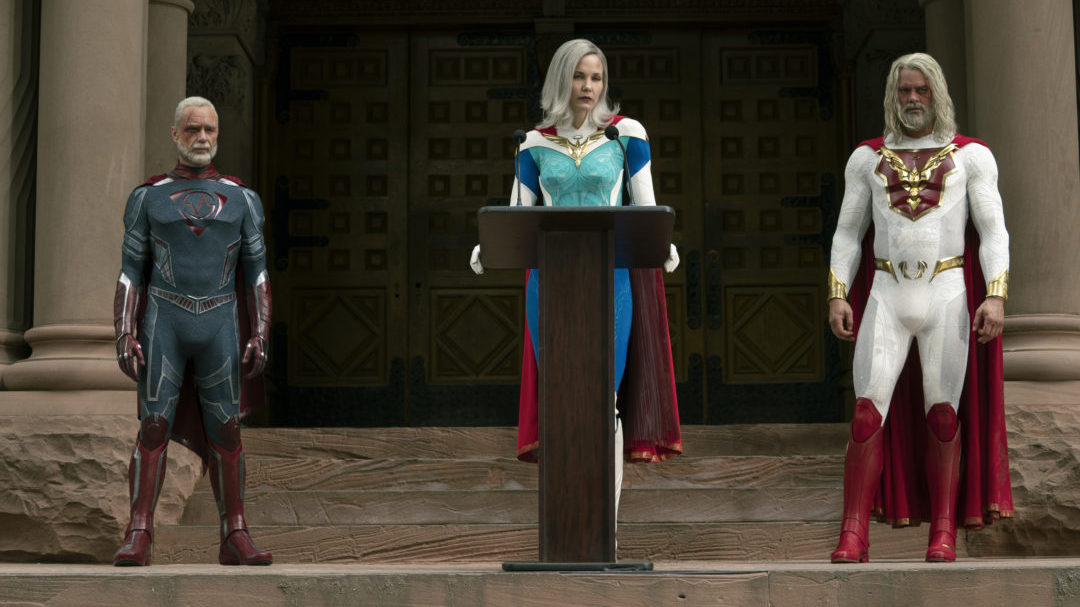

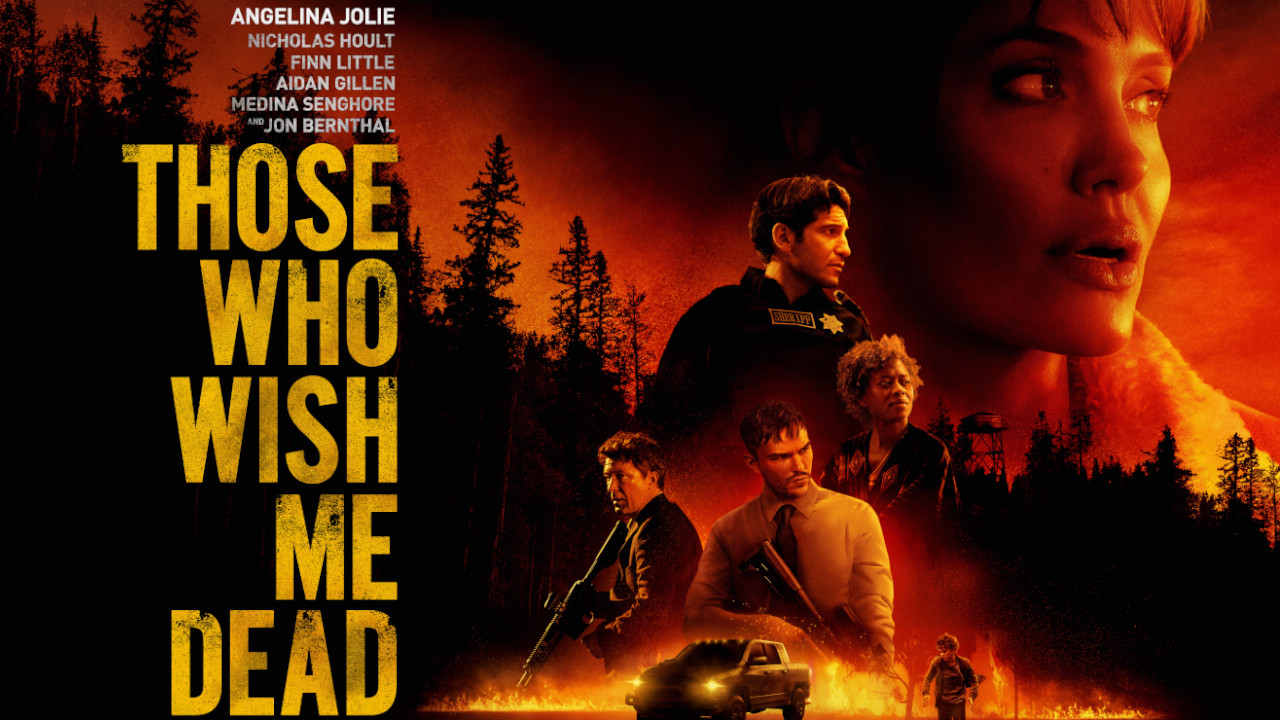



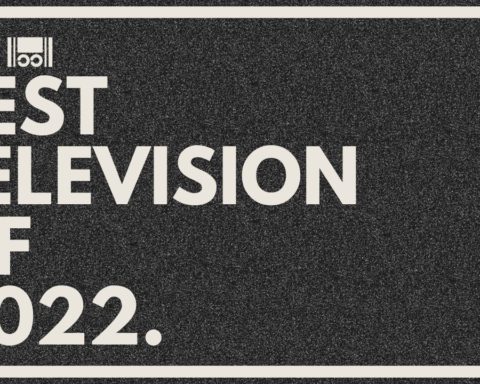
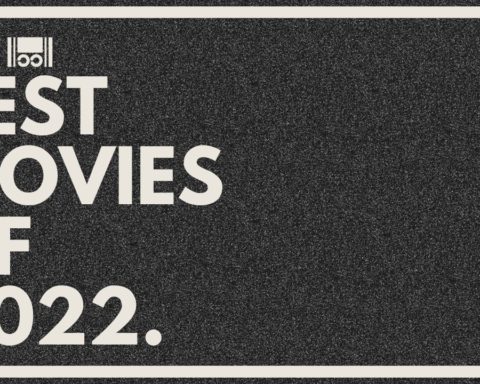

Follow Us